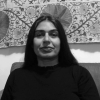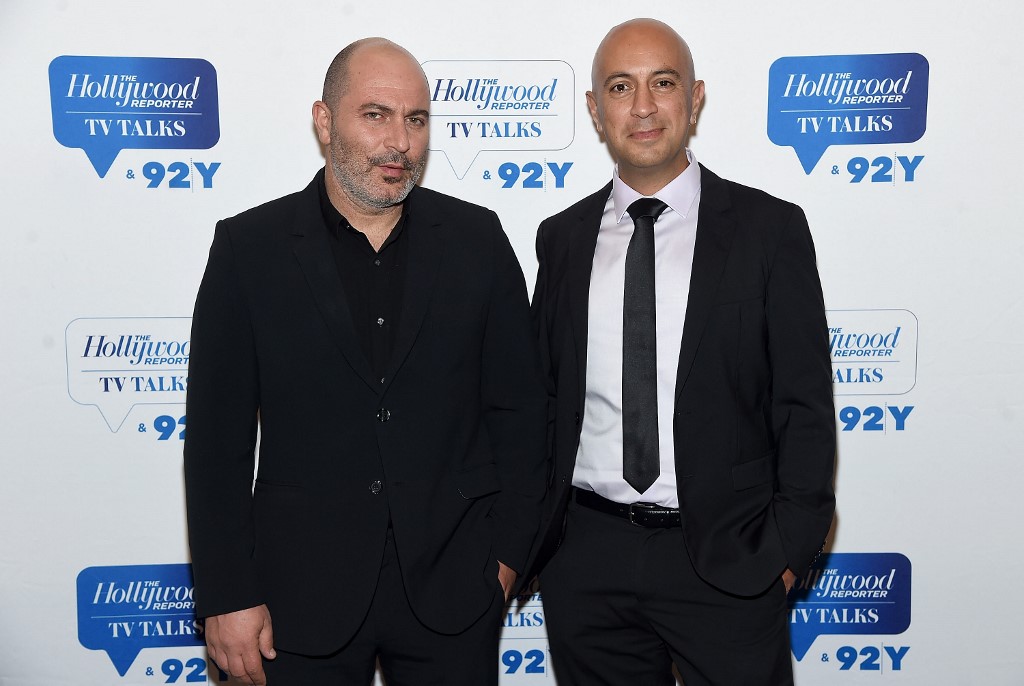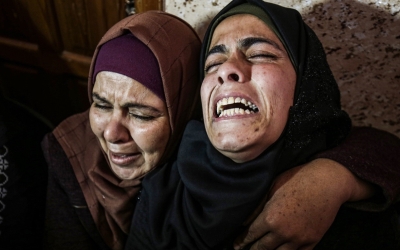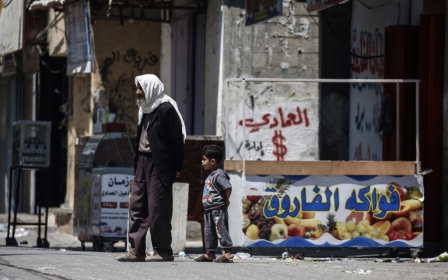Israel's Fauda: Immoral, exploitative drama turns Palestinian suffering into entertainment
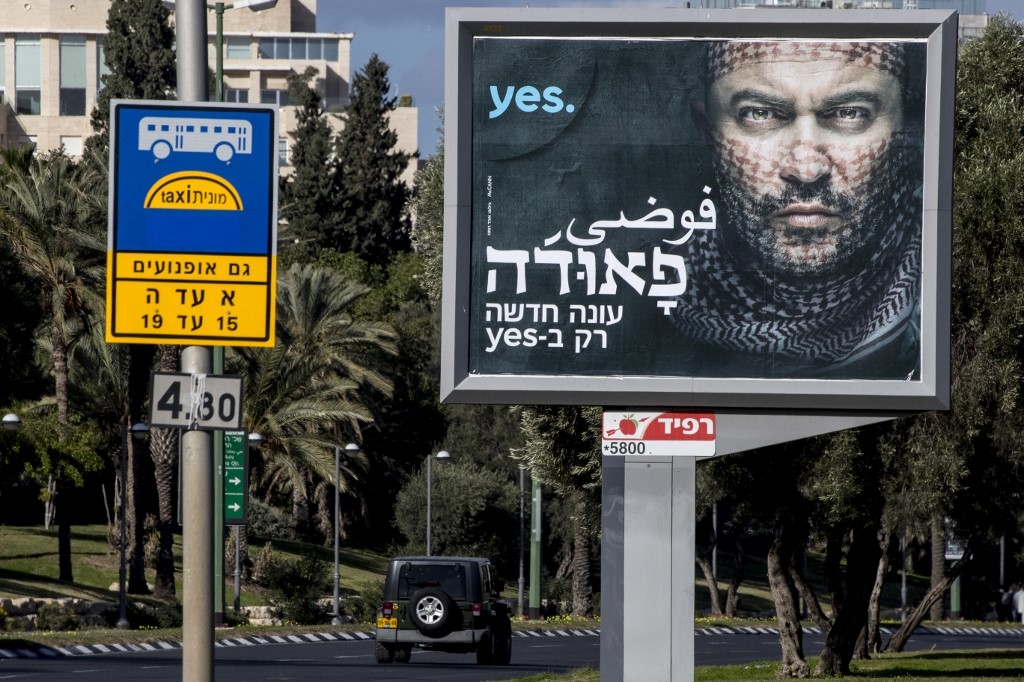
The TV series Fauda (Arabic for “chaos”) deals with the story of an Israeli undercover unit, the mistaravim, whose commandos carry out missions in the occupied Palestinian territories while disguised as Arabs.
Among the most successful Israeli drama series ever made, the show has garnered numerous awards, both at home and abroad. The show premiered in 2015 and Netflix acquired it the following year, after which Fauda became a wildly successful international hit.
Journalist Avi Issacharoff and actor Lior Raz created the series, based in part on their experiences in the Israeli army’s Duvdevan commando unit. Consultants for the show included Gonen Ben-Yitzhak, a former Israeli security coordinator and elite commando, and Aviram Elad, another Duvdevan graduate.
Barefaced arrogance
The first two seasons focused on the unit’s undercover operations in the occupied West Bank. The third season, which just started, deals with operations in Gaza. Before the current season began airing, producers launched an aggressive ad campaign that flooded Israel’s streets with huge billboards.
New MEE newsletter: Jerusalem Dispatch
Sign up to get the latest insights and analysis on Israel-Palestine, alongside Turkey Unpacked and other MEE newsletters
Every time I drive by one of these promo visuals or get stopped at a red light next to one, I cringe with shame.
I look at this and think of the incredible cynicism, the barefaced arrogance of this mockery
The new season’s ads portray the steely-eyed, bruised and bloodied face of an actor alongside the message “Welcome to Gaza”, written in English but using Hebrew letters. I look at this and think of the incredible cynicism, the barefaced arrogance of this mockery.
Welcome to Gaza. Welcome to the ghetto whose exits Israel has locked down for more than a decade, punishing more than two million people with a slow death. This, apparently, is the new virtual playground to gratify Israeli viewers' need for thrills, put into English to emphasise the American nature of this entertainment juggernaut.
A right-leaning Hebrew media site described the new season this way: “Fauda and its undercover mistaravim operatives commanded by Doron (Lior Raz) return for another tense and thrilling season. Their main mission this time is to damage the West Bank Hamas infrastructure operating from Gaza and take out the commander of the Hamas military wing there.”
Gaza: A myth for Israelis
Thrilling and suspenseful new challenges, and daring new missions. As in an elaborate computer game, the viewer can lean back and let himself be swept along with the drama, protected by the screen from the dramatic scenes unfolding in Gaza. The brutal situation of two million people under siege becomes merely a stage set for the storyline.
As such, the siege of Gaza itself becomes the best promo for the TV series. Thanks to another long year of closure, Gaza has become a kind of myth for Israelis: not wholly real, in the sense that real people live there, and yet simultaneously very scary and threatening.
The ignorance of ordinary Israelis that flourishes behind the dark screen Israel has imposed around the West Bank and Gaza, and the primeval fear it engenders, are major components in the secret to the success of this series.
Even more grotesque is how following tensely along with the stories of “our wonderful boys” in Gaza does not prevent most viewers of Fauda from claiming, in political arguments, “But we left Gaza! There’s no more occupation there!” In the meantime, they applaud every execution, detention or sophisticated ambush they see on their TV screens. We withdrew from Gaza, but what a great job we are doing there!
This alienation also encompasses a kind of exoticisation of Palestinians under occupation. For the vast majority of the Jewish Israeli audience, not only the action set in besieged Gaza, but also parts of the series set in the West Bank, describe places beyond the mountains of darkness. Nablus, Ramallah, Jenin - all have come to symbolise the realms of the netherworld that our boys bravely enter and leave, rather than vibrant cities a short drive from where we live.
I remember very well the first time I visited a friend in Jenin. At first, I was unable to comprehend the instructions he gave me. It did not sound logical that I should just get into my car and drive straight to him. I was astounded to discover how easy and short a drive it was.
Frightening and exotic
Fauda not only relies on this fear of Palestinian spaces, but amplifies it, legitimises it and normalises it. Palestinians are depicted as frightening and exotic creatures inhabiting places where only commandos dare to venture. Zionism has managed to transform Palestinians into exotic figures in their own homeland.
One key argument that emerges in many discussions of Fauda is that this series actually embodies a humane, even leftist, agenda, because it “portrays the complexity” and shows that the people on the other side are also human beings.
This point is worth pondering a moment, so that we can consider what it says about us, as Israelis, if after so many years of our violent rule over millions of disenfranchised Palestinians, we need to be reminded that they, too, are human beings. But the deeper moral failure in this argument is the symmetry it posits: see, there are people on both sides.
Given the underlying reality of Gaza, which years ago a UN report projected would be unfit for human habitation by the year 2020 - a forecast that has come true ahead of schedule - there is no symmetry.
On one side is the place whose existence for decades has been crushed by a regime of violence, poverty, destruction and death, wrought by one of the mightiest armies in the world; on the opposing side, that army maintains absolute control over the destiny of the other, with no intention of stopping.
Indescribable suffering
Fauda was created by people who took an active role in this regime of control and abuse. This TV series is the fruit of that collaboration, and as such, it is by definition illegitimate.
It is immoral to turn the suffering of the victim into entertainment for the victimiser. It is immoral to succumb to an adrenaline addiction at the expense of those in the crosshairs of our weaponry. Gaza is not a stage set for a drama series; it is a real place with real people experiencing indescribable suffering that we Israelis impose on them every single day.
It is important to know what is going on in Gaza as it disintegrates under siege, but not via entertainment for the masses
Yes, it is important to know what is going on in Gaza as it disintegrates under siege, but not via entertainment for the masses. We could, for instance, get to know the voices of young Gazans themselves via the important website “We Are Not Numbers”.
It’s easy to say “to hell with politics and morality”, or “there’s no choice but to go with the flow” - but there are always choices. We can, for instance, refuse to cooperate in turning victims into amusement for the occupiers or entertainment for the international community - the very same international community that has enabled the occupation to perpetuate these abuses for so many years.
The views expressed in this article belong to the author and do not necessarily reflect the editorial policy of Middle East Eye.
This article is available in French on Middle East Eye French Eye.
Middle East Eye delivers independent and unrivalled coverage and analysis of the Middle East, North Africa and beyond. To learn more about republishing this content and the associated fees, please fill out this form. More about MEE can be found here.


